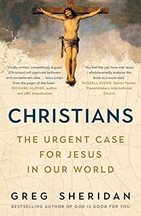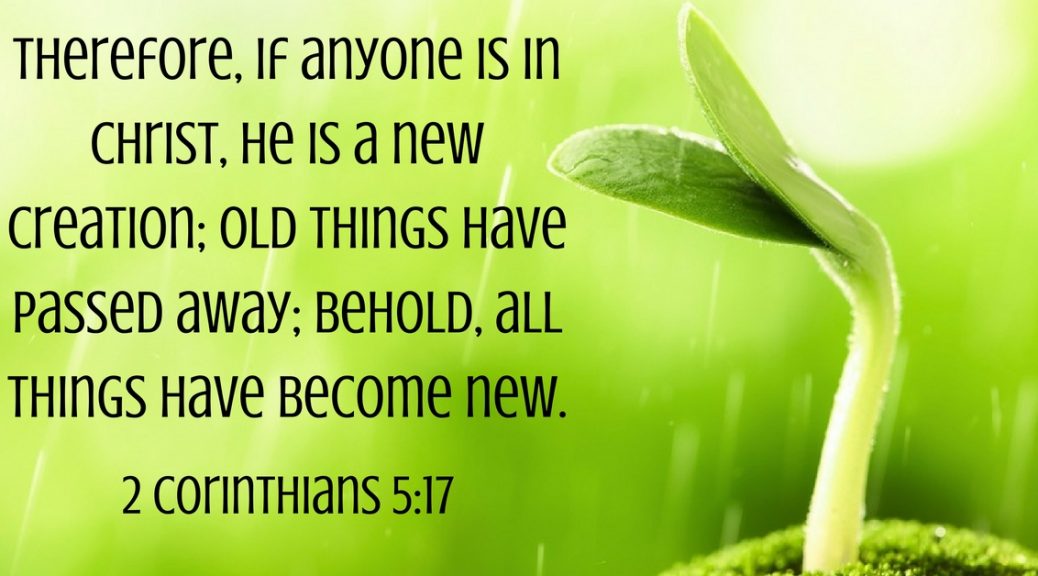Formation in Well-Being: A Challenge for Today’s Church
by Charles Ringma tssf
Introduction
Most of us at this conference today, know something of the reality of the pressures we experience at work. And these pressures are no different when ministering in the church, or working in church-related institutions. And they are no different when one is working in a business run by Christians, or in secular employment.
There is always more than needs to be done. There is the pressure of time- constraints, outcomes, and success. And often there are unrealistic expectations.
This is particularly true in church-related ministry. So many needs. So much more that needs to happen. And so many expectations that we place on ourselves, or that others place on us. As a consequence, Christian workers often feel burdened and not well-cared for. Burnout is a real problem. So is discouragement. And doing Christian ministry with an underlying vein of resentment can hardly be fruitful!
So, I am sure that many of you have come to this Ministerial Conference on well-being with hopes and expectations. In particular, you may feel that this topic is all the more relevant since the Covid crisis. Doing work well and being well-cared-for is a pressing challenge. And so, you have come believing that this is a most timely and relevant topic for those in Christian ministry.
But you may also have come with some concerns. You hope to gain some good ideas or strategies from this conference, but you are worried whether they can be implemented in your church.
You may also some deeper concerns. Is the concept of “well-being,” and its close cousin “wellness,” too trendy, psychological, aspirational, and vague. Does it promise too much? Will it only lead to frustration?
And if that is not enough some of you may be wondering what about the more traditional language of spiritual growth, Christian maturity, discipleship, Christ-likeness, and wholeness, among other terms that we are much more familiar with?
So welcome. And it’s ok if you are hopeful and expectant. And if you are concerned and a little troubled, that is ok too.
My happy task is not to push a particular line. I am not paid by a major pharmaceutical company to push well-being pills, although happiness pills are on the market. And ATS has not placed limitations on what I can say regarding this topic. They have only asked me to deal with church structures and practices that promote well-being. A big topic, no doubt. Enough to make me anxious which impacts my sense of well-being! Biro lang!
So come along for the ride. Let’s see what we can learn. I wish to make some basic moves. 1. I want to note the current interest in well-being in society. 2. I want to suggest that a Christian understanding of well-being has a different source and dynamic. 3. I want to make some suggestions as to what churches and church-related institutions can do to facilitate well-being. But I do so from the perspective of calling for significant change in the way we do church.
A Personal Vignette
But first a personal note. I am not giving this talk as an arm-chair theologian calmly sitting in a library. I do so as a practitioner having worked for decades in urban and cross-cultural mission and as one involved in pastoral ministry.
And I do so, having experienced a major health breakdown after several years of ministry to those in the drug scene.
I know something about failure in self-care, work-life balance, and in sabbath and other spiritual practices. I know something about the evangelical mantra of much-doing. And have struggled all my life in seeking to live and serve in more sustainable ways. My recent book In the Midst of Much-Doing: Cultivating a Missional Spirituality explores that journey.
Let me just say that failure can be a great blessing. It can immobilise us. It can also move us forward.
Well-Being in the Contemporary Cultural Landscape
A few weeks ago, the commanding general of the Australian army, gave a tearful public apology that the army had failed its soldiers and families in providing adequate support for its personnel in relation to high suicide rates. He said: “we have failed in the well-being of our soldiers.”
A little earlier we had a Royal Commission looking into problems in the Aged Care sector. The report highlighted a failure in providing adequate resources for the well-being of the elderly in aged care.
And more generally, in the current workplace, one of the challenges is that companies need to give greater attention to the overall well-being of their employees and to the conditions in the workplace in general.
Schools now have policies that are meant to guide and facilitate the well-being of teachers, support staff, and students. Mental health services provide well-being programs and strategies that facilitate a positive outlook, satisfaction with life, and life-giving ways of being and relating. And everywhere there are programs – physical, psychological, meditational, spiritual – that seek to promote well-being.
This theme has become so all pervasive that the World Health Organisation (WHO) has made well-being a key element in its public policy framework. The organisation recognises that well-being as a positive state is a key resource for daily living, and contributes not only to sustainability, but also to human thriving and productivity.
A Little Definitional Clarity
At the most basic level, well-being has to do with living a good quality of life in all its dimensions. Well-being has to do with being healthy, happy, positive, and growing in one’s full potential in the personal and social dimensions of life.
Well-being is, therefore, a relational concept. And Aristotle in the dim and distant past had already formulated the idea that my personal well-being is directly linked to your well-being. Thus, he thought of it in communal terms.
But since we are complex creatures, well-being is a complex. Therefore, it does not have a single source. It is the combination of a person’s physical, mental, emotional, spiritual, and social-health factors.
It’s Not That Simple
The above is all well and good, but it’s not that simple.
First of all, one’s sense of well-being differs in terms of one’s life cycle and aging. Contemporary Western young people see well-being as involving happiness, kindness, fun, and safety. The not-so-young see it in terms of inner harmony, mental health, and work-life balance. Others have other perspectives.
Second, the sense of well-being differs in different cultures. In contemporary Chinese culture, well-being has to do with contentment but also with optimism. And you will need to identify how well-being is understood in Philippine culture, but also in its different cultural groupings and social classes.
Third, and most fundamentally within a Christian world-view, how is well-being understood in a world of beauty and abundance and a world of brokenness, injustice, and the misuse of power? How is well-being understood when we are, and continue to be, sinner/saints, according to Martin Luther? How is well-being understood when we are called to be in Christ and to live in the way of Christ sustained by a cruciform spirituality – a spirituality that calls us to suffer on behalf of others? How is well-being understood when we are called to bear the cross? And how is it understood when we live the yet and not-yet nature of the kingdom of God in our world?
And finally, and most problematically, what does well-being look like when you live with a disability, live in poverty, have been displaced due to natural disasters or war, have lost your health, marriage, or your job, or you are marginalised, or discriminated against.
In the light of all of this, is well-being simply something we wish for and can work for, but remains a dream on the far horizon?
Well-Being in a Christian Frame
If you think that I am simply negative and dismissive of the current emphasis in society on well-being, you are mistaken.
Attention to the concern for well-being has important dimensions. The one, is that health and well-being cannot be attained simply by medication. The other, is that institutions can discriminate against certain people, can misuse its power, can be oppressive. And further, in all the configurations of social life, we need to promote and facilitate the dynamics of respect, care, equality, and the possibilities for growth and well-being.
So, the concept of well-being is helpful. Therefore, I wish to show that well-being is consistent with the Christian pastoral vision. But at the same time, I seek to show that this pastoral vision surpasses contemporary notions of well-being. And finally, I wish to make practical suggestions what this Christian-enhanced-notion of well-being may look like in our churches and church-related institutions, and other dimensions of life.
The heartbeat of the Christian vision is that the God of the biblical narratives is a God who is compassionate, restorative, and empowering. God heals and seeks to make us well and whole. God’s redemptive purpose in Christ, through the Spirit, is to bless humanity so that we can live in the joy and fulness of God’s purposes. Key terms that reflect goodness is the OT concept of shalom, and the NT concept of soteria.
As a consequence, of this restorative work of God, we are all called to love and care for others both within the faith-community and in society. And this includes the dynamics of respect, care, equality, and the possibilities for growth and well-being.
But well-being within a Christian frame is different. And it is different in a number of key ways. First, its source is Christological. It is living in Christ, in the way of Christ, and for Christ. Second, its inspirational centre is pneumatological. It is living and acting empowered and guided by the Spirit. Third, it is sacrificial. It is loving and serving the other – even the enemy – for that person’s blessing. Fourth, it is prophetic. It is willing to hear God’s corrective voice, to be converted and transformed, and to carry that vision into the world to call it to God’s light. And finally, it is eschatological. It is willing to live in the now what God’s final vision of restoration will look like.
In contemporary society well-being is a human project of care, justice, and empowerment. In the Christian faith well-being is rooted in the nature of God’s redemptive work in Christ and is expressed in an imitatio Christi that seeks to live God’s shalom and soteria in relation to all, including the neighbour in need and the enemy in anger. In Dietrich Bonhoeffer’s Ethics, well-being in contemporary society is living the penultimate (that which precedes the ultimate). But Christians are called to live the ultimate in the light of God’s final purposes.
What this means practically is that well-being within the life of faith is not merely a human project, is not a group’s self-enhancement, and it is not primarily a strategy. Rather, well-being is love of God and love of neighbour for the Christification of all of life to the glory of God.
Christological Well-Being and Structures and Strategies in Pastoral Care
It is at this point that I seek to be most specific. The global church is facing many external challenges. But there are also many internal challenges, which I primarily seek to address.
In dealing with current issues, we must not forget the broad sweep of church history, including what the church has not done well. In the past the church has brought people to faith with the power of sword. It has burned at the stake people who did not agree with its doctrines. It has sought to rule societies. And in recent centuries it has been coopted by colonialism, the pragmatism and scientism of our age, and has in many ways been culturally captive.
Much more recently, the Lausanne Movement has identified that global Christianity is weak in the formation of its adherents, in discipleship, and in ethical and sacrificial living. And we may add, that it has not been strong in its prophetic witness in the world.
This means that the issue of well-being – a big theme in contemporary services and institutions – poses a challenge to the church in terms of church’s conversion and growth. And we take up this challenge in the light of the Christological well-being we have already sketched out.
Make Your Own Move
I am about to make a number of suggestions. But you can tune-out if you like and have a mini siesta. What really needs to happen is that you need to make some practical moves when you leave here. You need to think about how well am I caring for staff? How well am I caring for myself? How well am I serving the congregation? How much are we all working together? How well do we share what we have? How well do we build each other up? How well do we celebrate? How well are serving the wider community? And other similar questions need to asked and explored, and answers implemented.
This is up to you. Be wise. Don’t be afraid. But if nothing changes – nothing changes!
Issues I Would Also Like You to Think About
• Churches need to be challenged to move from an easy believism to proclaiming and teaching a full-orbed gospel.
• Members need to be formed in the faith: biblically, spiritually, and missionally.
• The prosperity gospel needs to be replaced with a gospel of redemption, joy, discipleship, witness, and service.
• Church as institution needs to be reconfigured as church as community in Christ, as the body of Christ, and as a common life-together.
• Church leadership as mono-leadership needs to be reconfigured as reflecting the Trinitarian nature of God.
• Members of the church – the laity – must not be kept in infancy. Their voices need to be heard. Their gifts acknowledged. Their service in family, work, and the general marketplace celebrated.
• Reflecting the Trinitarian life of God, both the Christian family, the parish church, and all forms of Christian community and church related institutions need to function in inter-related and complimentary ways.
• The pastoral life of the church needs to be rediscovered. The church is so much more than a Sunday event. It is a life-together, and many forms of small group nurture, care, fellowship, and service need to be created and maintained.
• The dynamics of life-together is more than respect, care, and mutuality. It involves prayer, forgiveness, reconciliation, servanthood, and being willing to suffer for the sake of the other.
• Christological well-being involves love of God and love of neighbour. Service, relinquishment, generosity, sacrifice, are all part of a Christological formation in a full-orbed well-being.
• In order for such a well-being to flourish in the grace of God and the power of the Spirit, we need to face our own selfishness, the dynamics of exclusion and racism, our cultural captivity, and our misuse of power. As a consequence, our hearts need to be attuned to the weak and vulnerable in our midst.
•
So much more could and should be said. Clearly the life of the church must be transparent in relation to the laws of the land. And there are good reasons for us to learn from others – including those in secular fields of human well-being and flourishing. But the gospel challenge is that the new life of Christ takes us into a fuller way of being. It takes us beyond what we think is possible. The Gospel makes this specific. Matthew records the words of Jesus: “For I tell you, unless your righteousness exceeds that of the scribes and Pharisees, you will never enter the kingdom of heaven” (5: 20 ESV, my emphasis). The Greek term, perisseuo, and its derivates means: more than enough, abundant, remarkable, extraordinary.
Yes, we are called to promote well-being in terms of respect, care, and equality. But we are also called to bring forgiveness, reconciliation, love of the other including stranger and enemy, and a suffering servanthood for the sake of the other. Simply put, we are called to give our life, just as Jesus did.
Questions for Discussion
• What are the difficulties and blockages in engaging in discussion, evaluating, and improving things in your church or church-related institution?
• How much is your church task-oriented at the cost of also being nurture- oriented?
• What needs to happen if a Christ-shaped vision of well-being is to flourish in your church?
Charles Ringma, tssf.
Research Prof., Asian Theological Seminary, Metro Manila / Emeritus Prof., Regent College, Vancouver / Honorary Research Fellow, Trinity College Queensland, Brisbane / Distinguished Senior Fellow, Catechesis Institute, Waco, USA.




